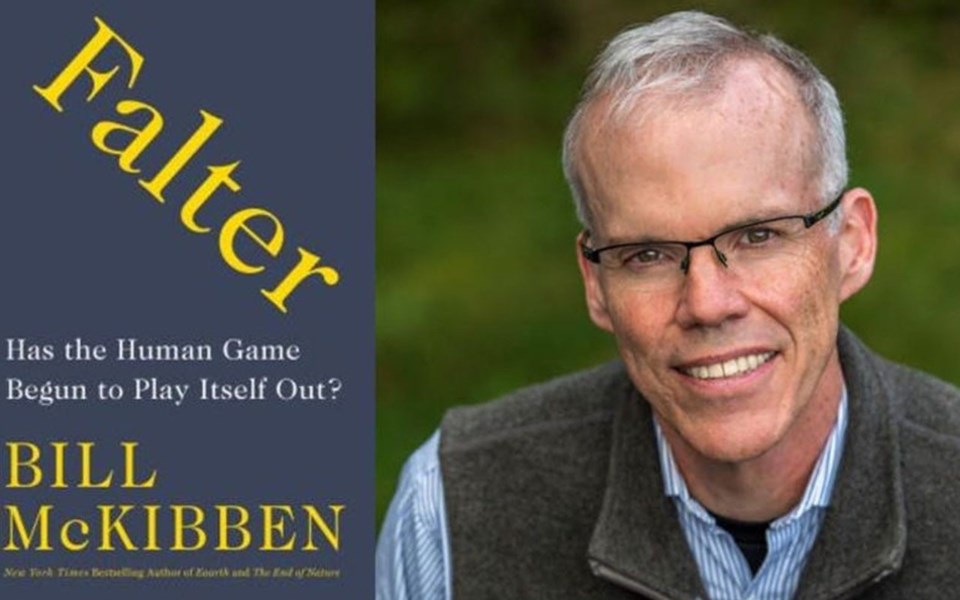Sure, we live in a bubble in Whistler. But given the chance, people here seem interested in becoming better-informed about the greater machinations of the world. Thus, two books to pique (have to use that word once a year) the interest of the thinkers on your Christmas list:
Falter: Has the Human Game Begun to Play Itself Out? by Bill McKibben, 2019
Author, climate crusader and founder of 350.org, Bill McKibben delivers his most pointed take yet on how the future might unfold if we don't heed the consensus warnings of the world's environmental scientists. McKibben, who first alerted us to the dangers of climate change with 1989's The End of Nature, now broadens his warning: with increasing signs of deep and widespread planetary change, the human game—a 200,000-year experimental blink of geologic time—may have begun to play itself out. Despite the implied jeremiad that indeed forms the first half of the book, McKibben, as always, unearths hope from amidst the denialist, head-in-the-sand morass, shifting the second part to wide-ranging insights into how we can, collectively, turn the corner from demise to promise.
Magic and Loss: The Internet as Art by Virginia Heffernan, 2016
Answering a question from my late father in the mid-1990s, I explained how his query might best be elucidated on the then-nascent World Wide Web, a.k.a., internet. He nodded politely, then said: "This internet—where is it?" I patiently offered a screed on what I knew of cyberspace and remote servers. Again, listening attentively, he rejoined: "OK, but where is it?"
It was a generational disconnect, but telling. We often refer to the internet as a place (good, bad, dangerous, indifferent), but conceiving of it as something architecturally tangible—more than mere space in which to transact the exchange of goods, information, experiences? Never. And yet, lacking tangibility in the traditional sense of mass or shape does not imply formlessness. Thus is the starting point for Magic and Loss, in which cultural critic Virginia Heffernan argues, more eruditely than you can imagine, that when it comes to art, the internet is human civilization's greatest masterpiece. Given the digital world's disseminate nature, however, this would be art difficult to step back from and describe—the yeoman's job Heffernan takes on.
Interpreting the life-transformations it has wrought, Heffernan takes the measure of the internet as a "vast cultural artifact" to rival the printing press. The first five chapters cover the evolution of this enterprise in, respectively, design, text, images, video, and music. Heffernan might be more interested in the magic these bring than the loss they invoke (though who among us isn't?), but the last chapter finds a balance—Heffernan's reckoning of the Internet as part of her own humanity.
It's an eventuality that, were my father still alive, might finally answer his question: akin to the atmosphere, whose every bit is connected to every other bit, the internet is the literal communicative nexus in which people and our things now mutually reside, and thus, as integral to our history as the pyramids.
Small books with big messages:
Whose Water is it Anyway: Taking Water Protection into Public Hands, by Maude Barlow, 2019
The Anthropocene Disruption, by Robert William Sanford, 2019
Little Spring: The Epic Journey of One Plastic Water Bottle, by Jean-Francois Plouffe, 2019.




